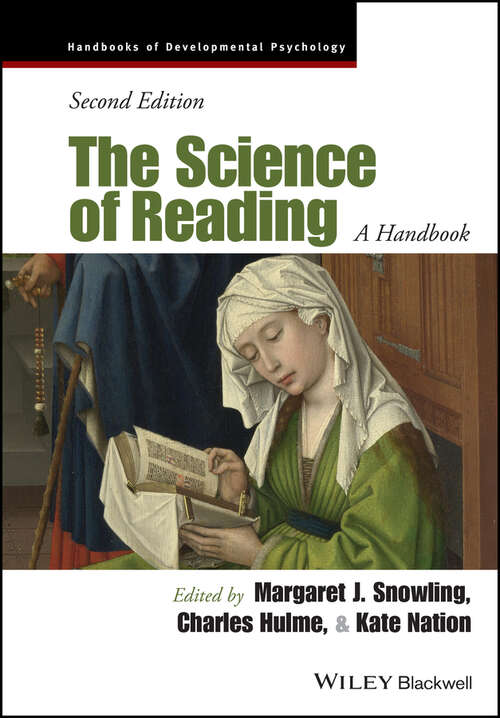The Science of Reading: A Handbook (2) (Wiley Blackwell Handbooks of Developmental Psychology #9)
By: and and
Sign Up Now!
Already a Member? Log In
You must be logged into Bookshare to access this title.
Learn about membership options,
or view our freely available titles.
- Synopsis
- Provides an overview of state-of-the-art research on the science of reading, revised and updated throughout The Science of Reading presents the most recent advances in the study of reading and related skills. Bringing together contributions from a multidisciplinary team of experts, this comprehensive volume reviews theoretical approaches, stage models of reading, cross-linguistic studies of reading, reading instruction, the neurobiology of reading, and more. Divided into six parts, the book explores word recognition processes in skilled reading, learning to read and spell, reading comprehension and its development, reading and writing in different languages, developmental and acquired reading disorders, and the social, biological, and environmental factors of literacy. The second edition of The Science of Reading is extensively revised to reflect contemporary theoretical insights and methodological advances. Two entirely new chapters on co-occurrence and complexity are accompanied by reviews of recent findings and discussion of future trends and research directions. Updated chapters cover the development of reading and language in preschools, the social correlates of reading, experimental research on sentence processing, learning to read in alphabetic orthographies, comorbidities that occur frequently with dyslexia, and other central topics. Demonstrates how different knowledge sources underpin reading processes using a wide range of methodologies Presents critical appraisals of theoretical and computational models of word recognition and evidence-based research on reading intervention Reviews evidence on skilled visual word recognition, the role of phonology, methods for identifying dyslexia, and the molecular genetics of reading and language Highlights the importance of language as a foundation for literacy and as a risk factor for developmental dyslexia and other reading disorders Discusses learning to read in different types of writing systems, with a language impairment, and in variations of the home literacy environment Describes the role of contemporary analytical tools such as dominance analysis and quantile regression in modelling the development of reading and comprehensionPart of the acclaimed Wiley Blackwell Handbooks of Developmental Psychology series, the second edition of The Science of Reading: A Handbook remains an invaluable resource for advanced students, researchers, and specialist educators looking for an up-to-date overview of the field.
- Copyright:
- 2022
Book Details
- Book Quality:
- Publisher Quality
- Book Size:
- 608 Pages
- ISBN-13:
- 9781119705130
- Related ISBNs:
- 9781119705116, 9781119705093, 9781119898009
- Publisher:
- Wiley
- Date of Addition:
- 12/05/22
- Copyrighted By:
- John Wiley & Sons Ltd
- Adult content:
- No
- Language:
- English
- Has Image Descriptions:
- No
- Categories:
- Nonfiction, Education, Language Arts
- Submitted By:
- Bookshare Staff
- Usage Restrictions:
- This is a copyrighted book.
- Edited by:
- Margaret J. Snowling
- Edited by:
- Charles Hulme
- Edited by:
- Kate Nation
Reviews
Other Books
- by Margaret J. Snowling
- by Charles Hulme
- by Kate Nation
- in Nonfiction
- in Education
- in Language Arts
